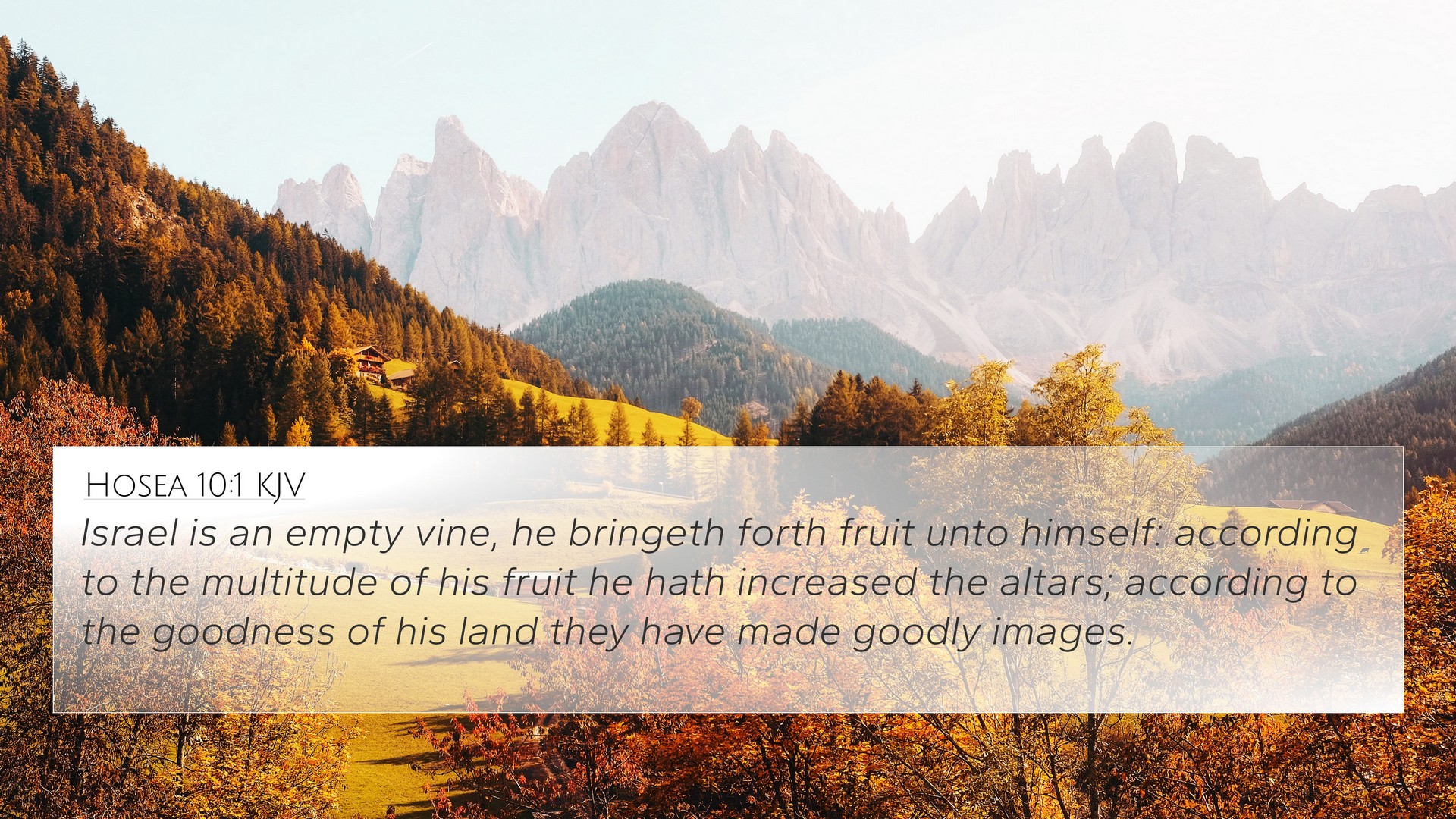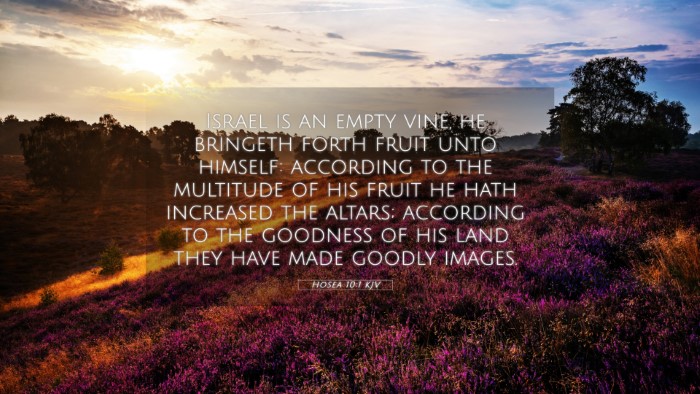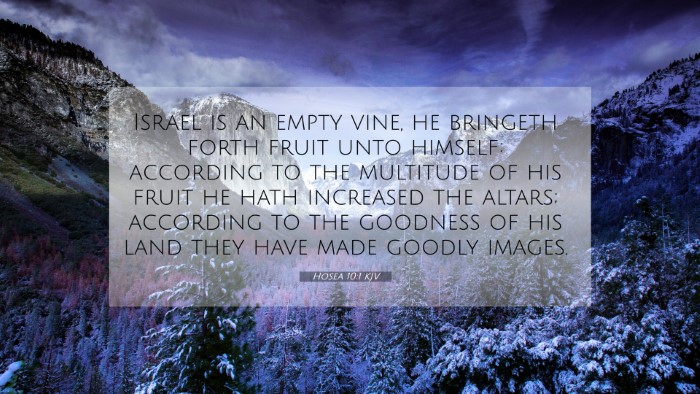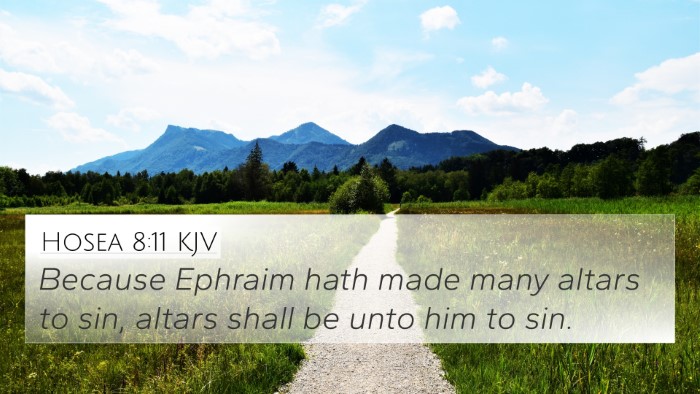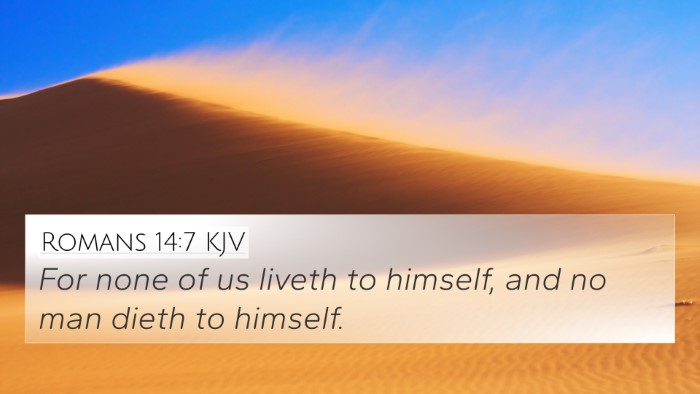Old Testament
Genesis Exodus Leviticus Numbers Deuteronomy Joshua Judges Ruth 1 Samuel 2 Samuel 1 Kings 2 Kings 1 Chronicles 2 Chronicles Ezra Nehemiah Esther Job Psalms Proverbs Ecclesiastes Song of Solomon Isaiah Jeremiah Lamentations Ezekiel Daniel Hosea Joel Amos Obadiah Jonah Micah Nahum Habakkuk Zephaniah Haggai Zechariah MalachiHosea 10:1 Similar Verses
Hosea 10:1 Cross References
Israel is an empty vine, he bringeth forth fruit unto himself: according to the multitude of his fruit he hath increased the altars; according to the goodness of his land they have made goodly images.
Uncover the Rich Themes and Topics of This Bible Verse
Listed below are the Bible themes associated with Hosea 10:1. We invite you to explore each theme to gain deeper insights into the Scriptures.
Hosea 10:1 Cross Reference Verses
This section features a detailed cross-reference designed to enrich your understanding of the Scriptures. Below, you will find carefully selected verses that echo the themes and teachings related to Hosea 10:1 KJV. Click on any image to explore detailed analyses of related Bible verses and uncover deeper theological insights.

Isaiah 5:1 (KJV) »
Now will I sing to my wellbeloved a song of my beloved touching his vineyard. My wellbeloved hath a vineyard in a very fruitful hill:

Hosea 12:11 (KJV) »
Is there iniquity in Gilead? surely they are vanity: they sacrifice bullocks in Gilgal; yea, their altars are as heaps in the furrows of the fields.
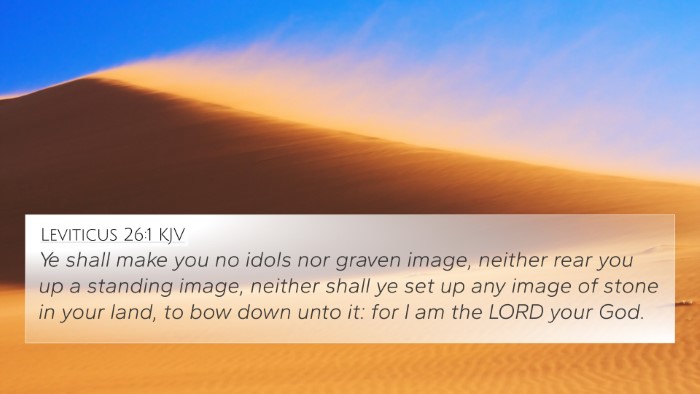
Leviticus 26:1 (KJV) »
Ye shall make you no idols nor graven image, neither rear you up a standing image, neither shall ye set up any image of stone in your land, to bow down unto it: for I am the LORD your God.
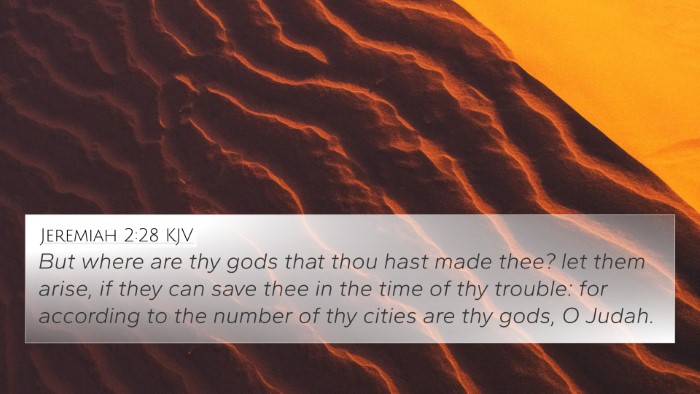
Jeremiah 2:28 (KJV) »
But where are thy gods that thou hast made thee? let them arise, if they can save thee in the time of thy trouble: for according to the number of thy cities are thy gods, O Judah.
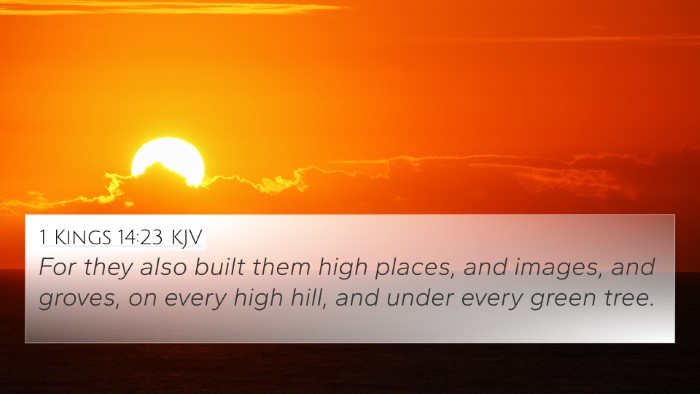
1 Kings 14:23 (KJV) »
For they also built them high places, and images, and groves, on every high hill, and under every green tree.
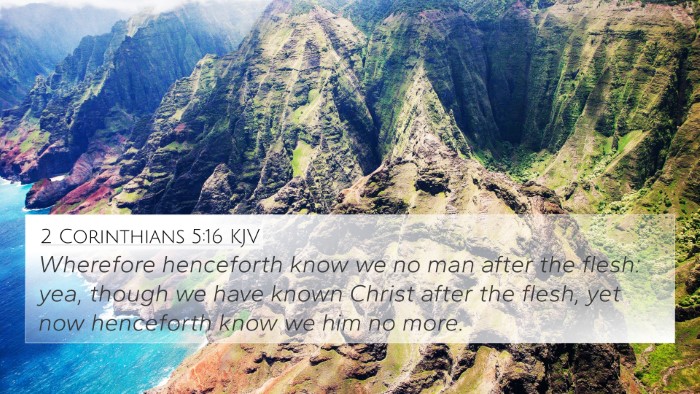
2 Corinthians 5:16 (KJV) »
Wherefore henceforth know we no man after the flesh: yea, though we have known Christ after the flesh, yet now henceforth know we him no more.
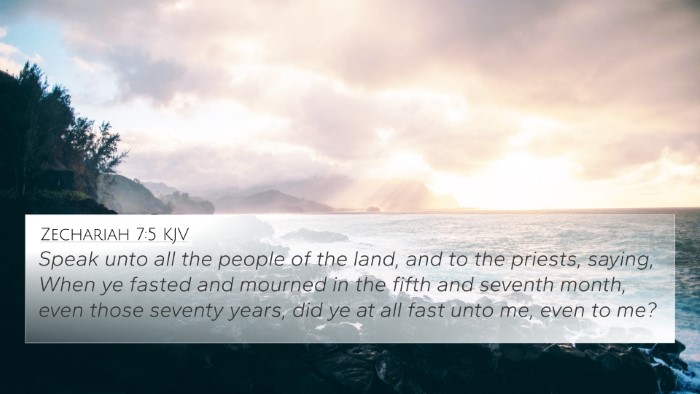
Zechariah 7:5 (KJV) »
Speak unto all the people of the land, and to the priests, saying, When ye fasted and mourned in the fifth and seventh month, even those seventy years, did ye at all fast unto me, even to me?
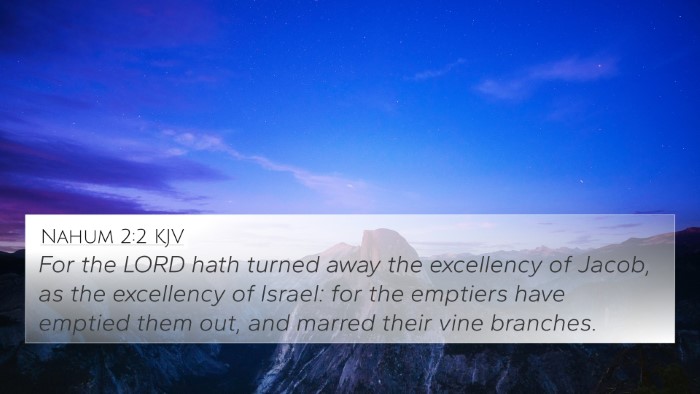
Nahum 2:2 (KJV) »
For the LORD hath turned away the excellency of Jacob, as the excellency of Israel: for the emptiers have emptied them out, and marred their vine branches.
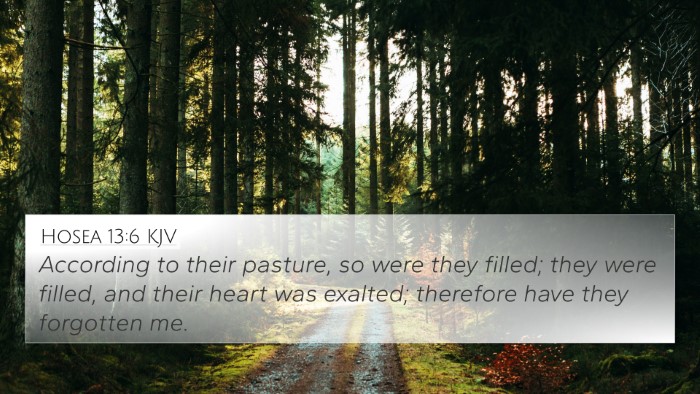
Hosea 13:6 (KJV) »
According to their pasture, so were they filled; they were filled, and their heart was exalted; therefore have they forgotten me.
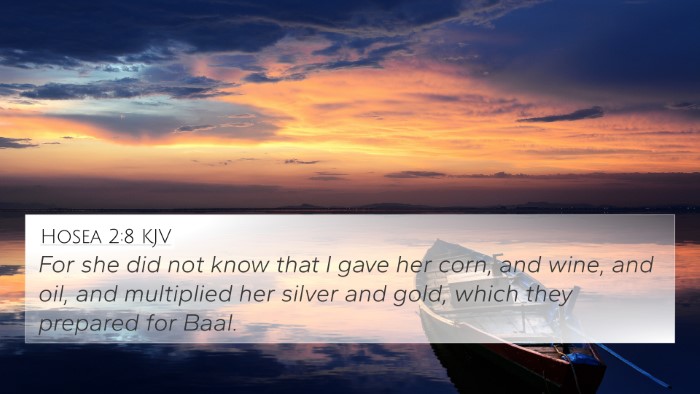
Hosea 2:8 (KJV) »
For she did not know that I gave her corn, and wine, and oil, and multiplied her silver and gold, which they prepared for Baal.
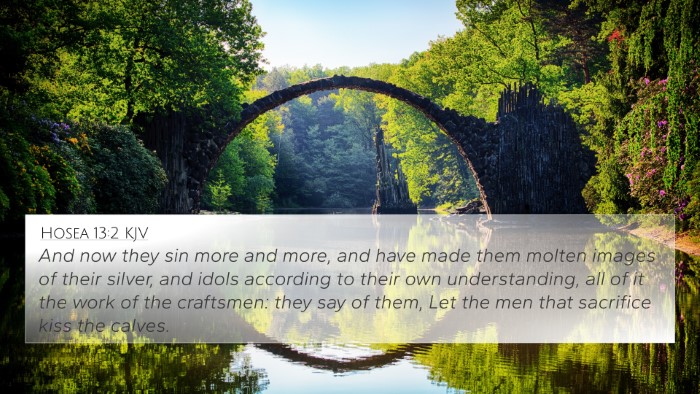
Hosea 13:2 (KJV) »
And now they sin more and more, and have made them molten images of their silver, and idols according to their own understanding, all of it the work of the craftsmen: they say of them, Let the men that sacrifice kiss the calves.
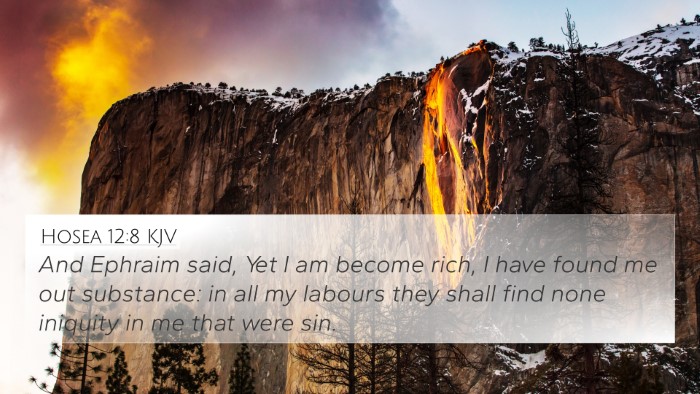
Hosea 12:8 (KJV) »
And Ephraim said, Yet I am become rich, I have found me out substance: in all my labours they shall find none iniquity in me that were sin.
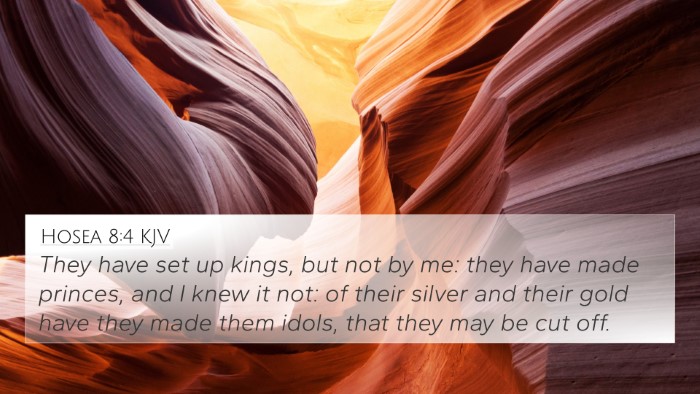
Hosea 8:4 (KJV) »
They have set up kings, but not by me: they have made princes, and I knew it not: of their silver and their gold have they made them idols, that they may be cut off.
Hosea 10:1 Verse Analysis and Similar Verses
Understanding Hosea 10:1
Hosea 10:1 states, "Israel is an empty vine, he bringeth forth fruit unto himself: according to the multitude of his fruit he hath increased the altars; according to the goodness of his land they have made goodly images." This verse reveals a profound metaphor about Israel's spiritual condition, using the imagery of a vine that does not fulfill its intended purpose.
Meaning and Interpretation
The verse presents Israel as an "empty vine," emphasizing a lack of genuineness or true fruitfulness in their relationship with God. Instead of producing good fruits for God, they were only gratifying their own desires. This reflects a recurring theme in the prophetic books where God's people are called to bear witness to His glory and live according to His ways.
Commentary Insights
- Matthew Henry: Matthew Henry indicates that the vine symbolizes Israel’s character, whose purpose is to signify fruitfulness for God. Instead, they have turned to idolatry and self-interest. The altars they have built stem from the abundance they received, yet these very altars depict a departure from true worship.
- Albert Barnes: Barnes elaborates that the "empty vine" illustrates the consequences of turning away from God. As Israel multiplied their altars and images, they forfeited the true blessings of God, leading to spiritual decline rather than growth. This serves as a warning about the dangers of external religion that lacks internal sincerity.
- Adam Clarke: Clarke discusses the significance of fruitfulness in the life of believers. He notes that true fruit bearing is a reflection of divine favor and guidance, and Israel's actions represent a betrayal of that trust, leading to a society increasingly engulfed in idolatry.
Bible Verse Cross-References
This verse connects with several significant scriptures, reinforcing its themes of idolatry, spiritual fruitfulness, and God's judgment:
- John 15:5: “I am the vine, ye are the branches: He that abideth in me, and I in him, the same bringeth forth much fruit: for without me ye can do nothing.”
- Isaiah 5:1-2: The Song of the Vineyard, where God describes His care for Israel as a vineyard, calls attention to their failure to produce good fruit.
- Matthew 7:17-19: “Even so every good tree bringeth forth good fruit; but a corrupt tree bringeth forth evil fruit.” This highlights the consequences of producing fruit that does not honor God.
- Jeremiah 2:21: “Yet I had planted thee a noble vine, wholly a right seed: how then art thou turned into the degenerate plant of a strange vine unto me?”
- Ezekiel 15:1-6: Uses the metaphor of vine to illustrate uselessness when disconnected from God.
- 1 John 2:15-17: Warns against loving the world, reflecting Israel's desire for prosperity over holiness.
- Galatians 5:22-23: Lists the fruits of the Spirit, contrasting with Israel's lack of true spiritual fruit.
- Hosea 4:16: “For Israel slideth back as a backsliding heifer: now the Lord will feed them as a lamb in a large place,” indicating Israel's departure from God.
- Psalm 80:8-9: “Thou hast brought a vine out of Egypt: thou hast cast out the heathen, and planted it.” This verse recalls God’s redemption of Israel and their subsequent failure.
- James 3:12: Addresses the inconsistency of producing bitter and sweet fruits, paralleling Israel's duality in serving God and idols.
Thematic Connections Between Bible Verses
The themes arising from Hosea 10:1 resonate throughout the Bible, facilitating deeper understanding through these connections. Key themes include:
- Spiritual Fruitfulness: The consistent biblical theme of bearing good fruit as a reflection of one's relationship with God is central in both the Old and New Testaments.
- Idolatry vs. True Worship: A recurring warning against idolatry not only in Hosea but also throughout the Law and the Prophets, leading to inevitable consequences.
- God's Judgment: The theme of divine judgment for unfaithfulness is vividly illustrated through the prophetic calls for repentance directed towards Israel.
- Restoration:** Despite Israel’s failings, a thread of hope for restoration through repentance runs through the scriptures, culminating in the New Covenant.
Tools for Bible Cross-Referencing
Utilizing tools for Bible cross-referencing, including a bible concordance or a bible cross-reference guide, can be extremely beneficial for deeper understanding. Here are some suggested tools:
- Online Bible Study Tools: These platforms often include cross-reference features.
- Bible Software Programs: Advanced tools can assist in organizing and cross-referencing verses.
- Physical Cross-Reference Guides: Many study Bibles contain built-in cross-references.
- Commentaries and Study Guides: Utilizing these resources can clarify connections between passages.
How to Use Bible Cross-References
To effectively utilize Bible cross-references, follow these steps:
- Identify Key Themes: Look for central ideas in verses that might have interconnections.
- Trace Contextual Usage: Study how those themes are discussed in various biblical texts to gain a fuller understanding.
- Apply Thematically: Consider how themes in one part of the Bible illuminate those in another, creating a holistic view of scripture.
Conclusion
Hosea 10:1 serves as a reminder of the vital importance of spiritual authenticity and fruitfulness. By exploring cross-references and thematic connections within the scriptures, we gain a deeper understanding of God’s expectations for His people and the consequences of failure to heed His call. Engaging with the Bible through these angles enriches our study and enhances our application of its teachings.
